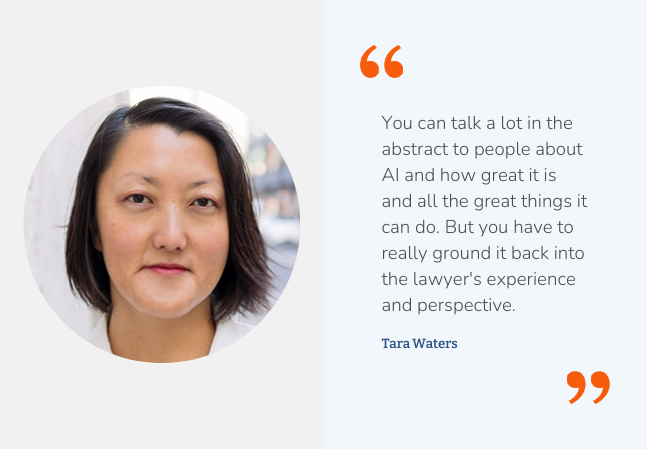Welcome to BARBRI, the trusted global leader in legal education. Continue to access the same expert-led Strafford CLE and CPE webinars you know and value. Plus, explore professional skills courses and more.
About the Course
Introduction
This CLE course will address the role that special committees play in board governance and when committees are appropriate versus necessary, how to utilize a special committee, and the considerations for a board when appointing a special committee. The panel will provide guidance for when a board must consider a special investigation and what circumstances, including regulatory, legal, or reputational, that an inquiry must address.
Description
Corporate boards can utilize special committees in certain circumstances. Special committees are recommended when a disputed transaction involves a controlling stockholder, a majority conflicted board, or there is the appearance of a conflict between a majority stockholder and the corporation. A special committee may also be warranted where federal regulatory investigations or whistleblower allegations implicate senior management in compliance and corporate culture failures.
There are no hard and fast rules for determining the directors that should serve on a committee other than being disinterested and independent. If the board of directors currently does not have enough independent directors to serve on the committee, it may add new independent directors to the board. At all times, the board should ensure it complies with the company's bylaws and all applicable state corporate laws. Successful committee members should be available and interested in serving, possess expertise in the subject matter of the investigation, and can work collaboratively and act decisively.
Legal counsel for a special committee must carefully consider the board resolutions granting the special committee its powers and ensure that the board has provided the special committee with sufficient power to carry out its role as arm's length negotiator. Although the authority to negotiate is critical, the special committee may need certain other powers of the board to increase the leverage that the special committee may bring to bear.
When a special committee conducts an internal investigation, the committee and committee counsel must understand their separate roles and responsibilities and how to perform document collection and review. The process may include witness interviews and examination of privileged documentation.
Listen as our authoritative panel provides best practices and procedural advice on establishing a board special committee and conducting an internal investigation when a board issue arises that requires an independent examination of the evidence and a determination on how to move a company forward.
Presented By

Mr. Brownstein provides turnaround management and advisory services to companies and their stakeholders, as well as investment banking services, fiduciary services, and litigation consulting, investigations and valuation services. He also serves as an independent corporate board member for publicly-owned and privately-held companies, as well as large nonprofits.

Ms. Burton litigates internal governance issues and complex commercial disputes, primarily in the Delaware Court of Chancery. She has deep and broad expertise with Delaware corporate and alternative entity law, as well as a particular expertise representing special committees and litigating compliance with Delaware’s corporate formalities, including issues involving corporate control under Section 225 or validation under Sections 204 or 205 of the DGCL.

Ms. Krabill concentrates on complex commercial matters with an emphasis on securities and corporate governance litigation, including securities class actions, shareholder derivative actions, special litigation and demand review committee investigations, and other contract and tort actions involving securities and fundamental corporate transactions.

Ms. Mirabella advises clients on a broad range of issues in connection with government and internal investigations, special committee and board-led investigations, whistleblower complaints, and building, enhancing and testing compliance programs. As a part of her work, she represents public companies, financial institutions, and senior officers in connection with high-profile and complex matters including domestic and cross-border internal investigations as well as investigations initiated by the Department of Justice, U.S. Securities and Exchange Commission (SEC), the Financial Industry Regulatory Authority (FINRA) and other federal and state regulators. Ms. Mirabella has handled matters involving, among other things, the Foreign Corrupt Practices Act (FCPA), the False Claims Act (FCA) and various securities laws and regulations.
-
This 90-minute webinar is eligible in most states for 1.5 CLE credits.
-
Live Online
On Demand
Date + Time
- event
Thursday, December 10, 2020
- schedule
1:00 p.m. ET./10:00 a.m. PT
- Board special committees
- Components of effective special committee process
- Independence of committee members
- Committee's role and process
- Selection of the committee's advisers
- Additional considerations
- What is best for the company
- Document the process
- Special committee interaction with conflicted persons
- Cooperation
- Meetings of the special committee
- Confidentiality
- Management interaction with special committee advisers
- Bylaws and charters
- Investigations
- Regulatory, legal, or reputational issues
- Conflict of interest for top management
- Potentially material occurrence or condition
This panel will review these and other topics:
- What circumstances require a board to appoint a special committee?
- How does a board appoint independent and disinterested members, and how is the committee's role defined?
- What issues arise when the special committee interacts with a conflicted management member?
- What should a company's bylaws or charter include regarding special committees?
- How should a company address a special committee investigation related to regulatory, legal, or reputational issues?
Unlimited access to premium CLE courses:
- Annual access
- Available live and on-demand
- Best for attorneys and legal professionals
Unlimited access to premium CPE courses.:
- Annual access
- Available live and on-demand
- Best for CPAs and tax professionals
Unlimited access to premium CLE, CPE, Professional Skills and Practice-Ready courses.:
- Annual access
- Available live and on-demand
- Best for legal, accounting, and tax professionals
Unlimited access to Professional Skills and Practice-Ready courses:
- Annual access
- Available on-demand
- Best for new attorneys
Related Courses

Multinational Data Privacy Compliance: Managing EU and UK Regulatory Requirements
Tuesday, March 24, 2026
1:00 p.m. ET/10:00 a.m. PT

California Climate Disclosure Laws: Compliance Strategy for SB 253 and SB 261
Available On-Demand
Recommended Resources


Expert Interview: Tara Waters and How AI Can Bring People Together
- Legal Technology

